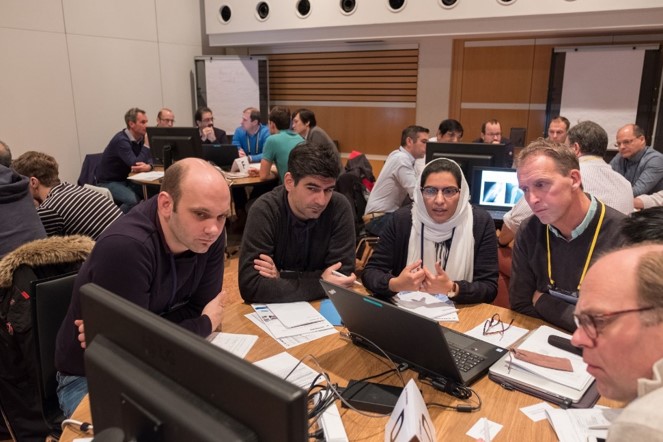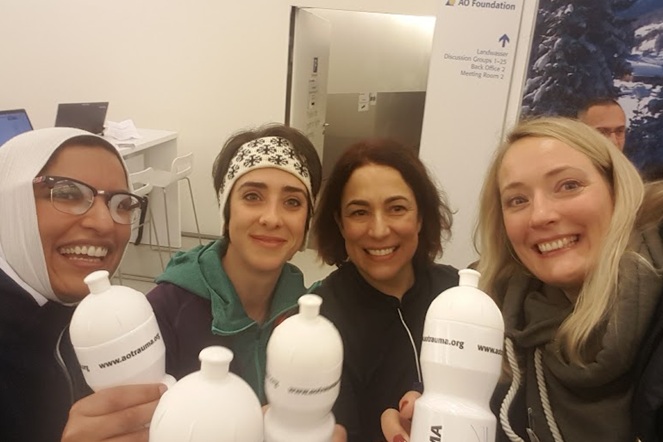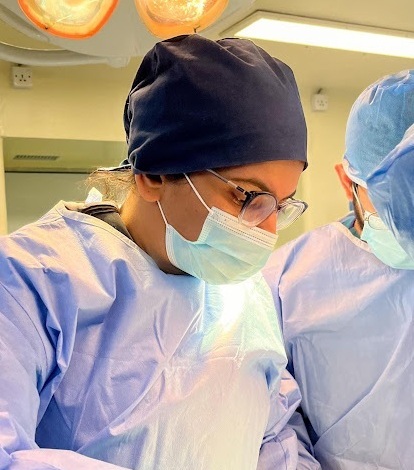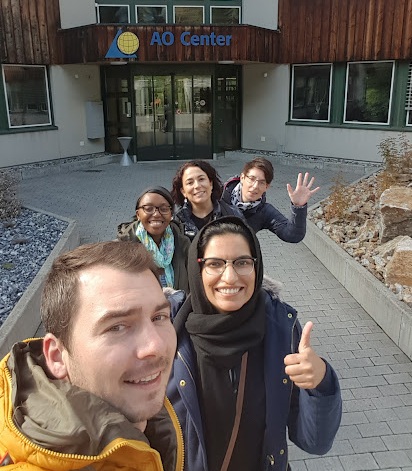Ayesha Saeed: Leading change in trauma research
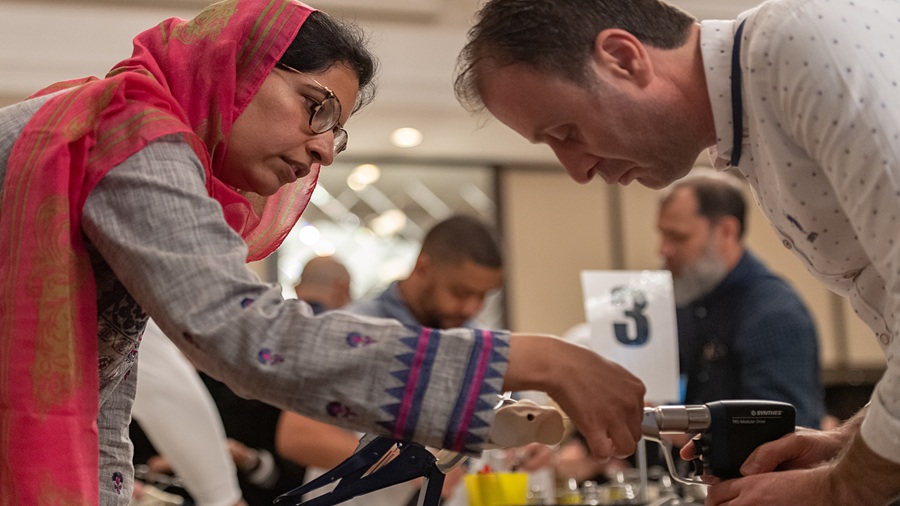
Ayesha Saeed, a pediatric orthopedic surgeon at Indus University Hospital in Karachi, Pakistan, has recently been appointed chairperson of the AO Trauma Middle East & North Africa (MENA) Research Commission. Her long-lasting connection with the AO Foundation and her three-month clinical research fellowship at the AO CID (now a part of the AO Innovation Translation Center, ITC in the form of the Clinical Evidence team) have played an essential role in shaping her career.
Saeed's professional journey took a pivotal turn when she embarked on her clinical research fellowship in Dübendorf, Switzerland. "At the time of applying, I was an AO Trauma fellow in Germany and working on a research project. Honestly, I didn't quite understand what I was signing up for, and the first few days were tough." Accustomed to the dynamic atmosphere of the operating room, Saeed found the sedentary nature of research work daunting. "But my perception changed quickly, mainly because the teaching, the in-depth training, and the one-to-one coaching I was given were amazing."
Her fellowship experience was transformative. It provided her with the tools to critically evaluate clinical research and understand the importance of regulatory requirements and ethical conduct.
Saeed specializes in pediatric orthopedic conditions: "Pakistan has a very young population. However, there is very little medical expertise for rare congenital pediatric conditions. I feel that directing all your effort and energy toward young children will greatly impact that child's life and, eventually, our society."
In July, she will assume her new role as Chairperson of the AO Trauma MENA Research Commission. Her goal is to enhance the research landscape in the MENA region, particularly in Northern Africa, where research opportunities are limited. "I want to shine a light on all the research opportunities that the AO is offering and encourage more young surgeons from my region to apply for them."
Saeed's connection with the AO Foundation has been a cornerstone of her career. "I made many long-lasting connections during my fellowship, and those connections eventually got me into teaching. My mentor, Anahi Hurtado-Chong, took me to the first AO PEER course in Nepal in 2017, and since then, I've been going to 2-3 courses in my region every year. The effect of these courses is huge because surgeon-friendly resources are scarce in our region."
In a conservative country and a field dominated by men, 42-year-old Saeed stands out, and her journey has not been without challenges. During her residency, she was often mistaken for a nurse, and even now, she sometimes faces skepticism from parents about her ability to perform surgeries. However, she is undeterred. "If you approach them confidently and have a clear plan, they will realize you know your job."
Saeed's presence in AO leadership roles has profoundly impacted other female surgeons in the region. "When I teach at a regional AO course, it gives the young female surgeons a lot of confidence to see faculty of the same gender. It gives them a sense of belonging." She also notes that within her roles for the AO, she has experienced a lot of support from her male colleagues: "The AO's approach, embracing equality, diversity, and inclusion, makes a difference in how we work together. Some of my male colleagues might act differently in another context, but there is a strong sense of equality and uniformity while we're at an AO course or on a committee."


